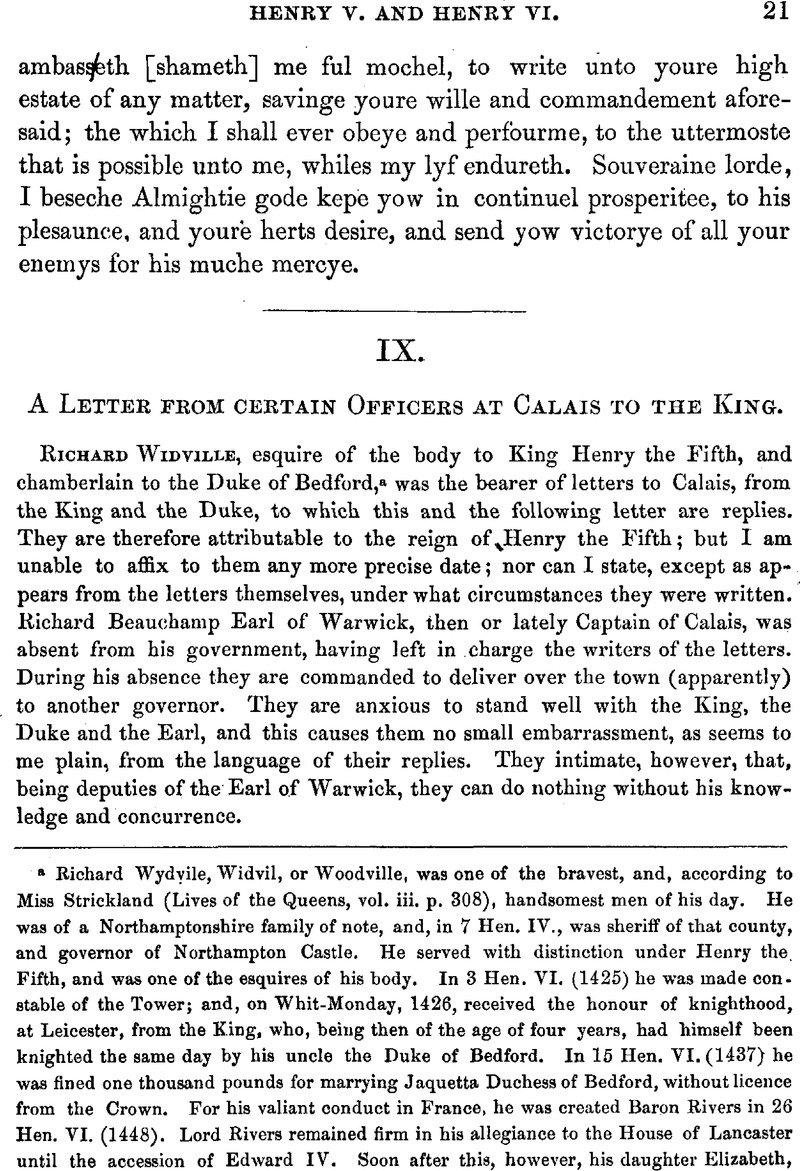No CrossRef data available.
Published online by Cambridge University Press: 23 February 2010

page 21 note a Richard Wydyile, Widvil, or Woodville, was one of the bravest, and, according to Miss Strickland (Lives of the Queens, vol. iii. p. 308), handsomest men of his day. He was of a Northamptonshire family of note, and, in 7 Hen. IV., was sheriff of that county, and governor of Northampton Castle. He served with distinction under Henry the Fifth, and was one of the esquires of his body. In 3 Hen. VI. (1425) he was made constable of the Tower; and, on Whit-Monday, 1426, received the honour of knighthood, at Leicester, from the King, who, being then of the age of four years, had himself been knighted the same day by his uncle the Duke of Bedford. In 15 Hen. VI. (1437) he was fined one thousand pounds for marrying Jaquetta Duchess of Bedford, without licence from the Crown. For his valiant conduct in France, he was created Baron Rivers in 26 Hen. VI. (1448). Lord Rivers remained firm in his allegiance to the House of Lancaster until the accession of Edward IV. Soon after this, however, his daughter Elizabeth, widow of Sir John Grey, having captivated the King, he was taken into favour, and great honours and trusts were conferred on him. He was made Treasurer of the Exchequer, Lord High Constable of England, and advanced to the rank of an Earl. After a brilliant career, the common story is that, in 9 Edw. IV. he was seized in his house at Grafton near Towcester, by Sir William Conyers a Lancastrian partisan, who, under the name of Robin of Ridsdale, raised an insurrection against the Yorkist government; that he was hurried to Northampton, and there beheaded. (Dugd. Bar. vol. ii. p. 230; Warkworth's Chronicle, p. 6.)